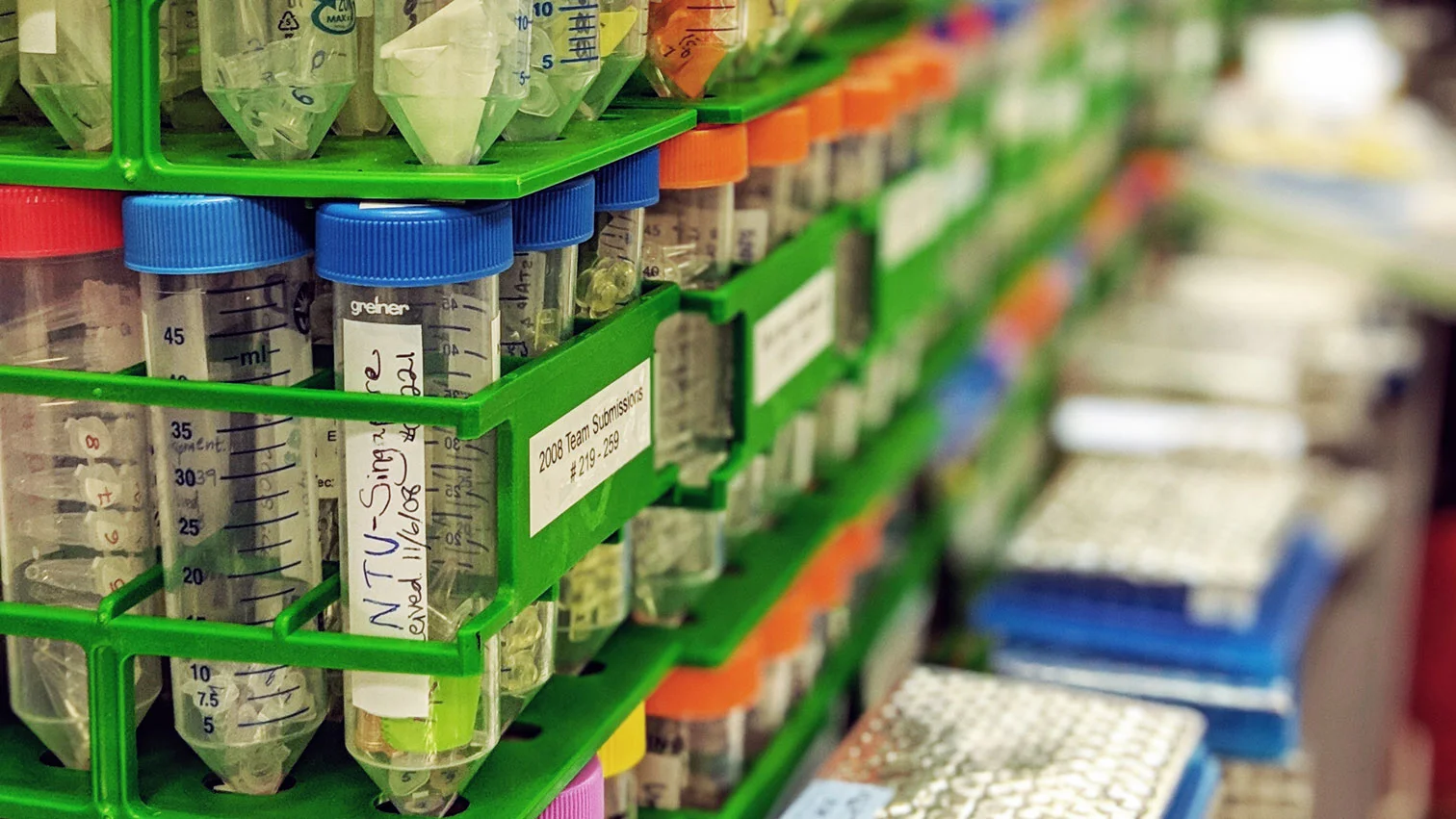A letter to my role model
by Henrik Johansen
Human Practices co-coordinator iGEM Team SDU-Denmark
Mail: igem AT sdu DOT dk
This is part one of a two-piece blog post. This post is a personal story of LGBTQ+ experiences in iGEM and Academia, while the second post in the series will outline small acts that Allies and Educators can take to ensure a better and more inclusive iGEM experience for all. See part 2 of this series on “Creating a Welcoming and Inclusive Space for LGBTQ+ iGEMers” by Landon Getz, a member of the Diversity & Inclusion Committee.
iGEM 2019 Team SDU-Denmark in the lab - photo credit: Jacob Fredegaard Hansen
In Denmark, where I live and grew up, the first decision you make regarding what you want to do for a lifelong career happens at the age of fifteen. Do you want to attend technical high school, business school, or go into some form of craftsmanship? This will affect the kind of path you can follow later in life and the doors that will open and close for you.
As a young, confused, and gay teenage boy living in the Danish countryside, I had very few role models: people I could relate to and people who were like me. I think I always knew I was different from the other boys in my class. I found great fun in dressing in my mother’s old gowns and playing with my sister’s dolls. It never felt quite right as I grew older and became sweethearts with girls. Around 2011, a dating-show became widely popular in Danish television, partly due to the fact they had special episodes featuring a cast of gay men. Finally, I saw people who were like me, at least for the most part.
I had a deep love for biology and science, but I didn’t see LGBTQ+ people in these roles. The only references to gay men I saw in popular media at that time were cosmetologists or hair-dressers, and I thought that must be the path for me. Thus as the confused teenager I was, I tried to change my looks and behavior into what I saw, and based my whole character on these stereotypes. After all, that was how I was convinced a gay man was supposed to be, and that was also how many parts of society viewed gay men at that time. I even tried to apply for a school internship at a cosmetology clinic (it’s a thing we do here for youngsters to explore different jobs), and when I didn’t get it, I figured I could at least try to give the biology internship a shot.
There I met You. You’re probably not aware of how important You were to me, but You changed a life with your guided tour in the Botanical Garden in Copenhagen. You showed me that I can be both gay and a scientist, and that I didn’t have to conform merely to the stereotypes presented in media. Thank you for giving me the strength to come out to a new colleague, and for giving me patience when that colleague apologized multiple times that they assumed I was engaged to a woman. Thank you for giving me the mental capacity to brush off the gloomy feeling in social gatherings when a colleague told a joke involving gay stereotypes, and that joke hit a little too close to home.
Team SDU-Denmark at the Nordic iGEM Conference in Copenhagen - photo credit: Jacob Fredegaard Hansen
Most of all, thank you for giving me someone to look up to and aspire towards. You gave me a role model, and you also inspired me to be one as well. As a peer-to-peer sexual educator, I had the chance to visit schools and mentor youngsters, who were as lost as I was when I was 15. After a session about the LGBTQ spectrum, where I was very open about my own experiences, a girl came up to me to thank me for showing her she was not alone. For me, this highlighted the importance of LGBTQ visibility. Importantly, teachers, professors and supervisors are role models, and we need to create a safe environment where they can be out, so they can inspire the next generation of LGBTQ+ youth to be scientists.
In many places of the world, scientists are still risking their careers, and in extreme cases their lives, for just being who they are. This became evident when I was looking for a university at which to study abroad and was advised to filter out universities in countries where I could risk being heavily discriminated against for being myself (this list includes greater than 60 countries). These opportunities were closed to me because of my identity.
Henrik Johansen giving a workshop at the iGEM 2019 Danish meet-up in July - photo credit: Jacob Fredegaard Hansen
What I have is the ability (and perhaps the responsibility) to voice these issues, and the iGEM competition and their diversity committee have provided a platform to do so. I am privileged to live in Denmark as a white, cis-gendered guy with a supportive family and accepting friends, and, although still frustrating and unacceptable, I have been lucky to only have experienced minor acts of systemic and institutional discrimination within my faculty. However, my hope with this piece is to encourage everyone in STEM fields to be more vocal about LGBTQ rights, to help create an environment where students and professors alike feel safe and comfortable to be out, and to inspire others, LGBTQ or not, to do their best to accept and be kind to all their fellow humans. Scientists are humans too, and humans need someone to believe in, someone to aspire to, someone who lights their way.










